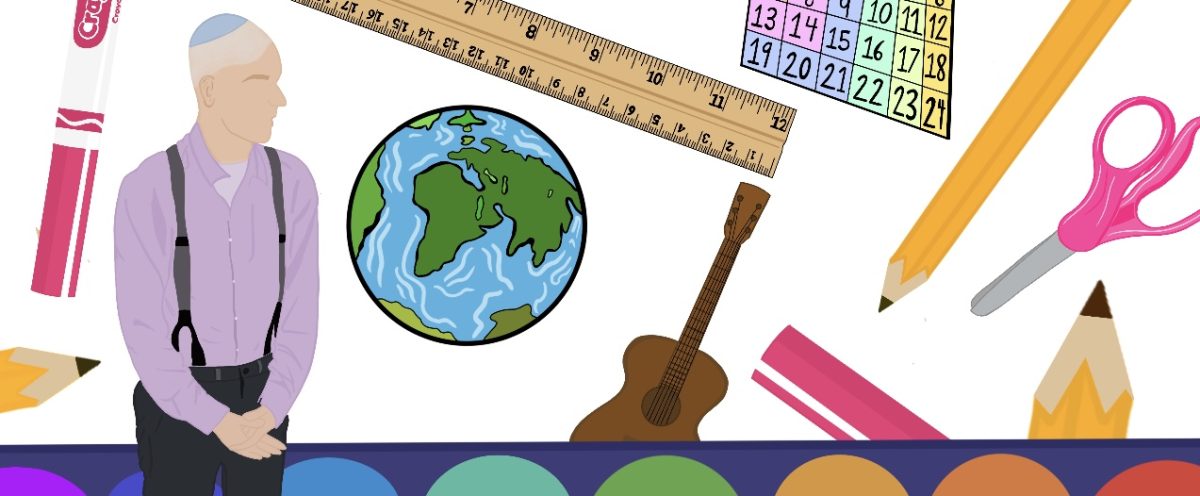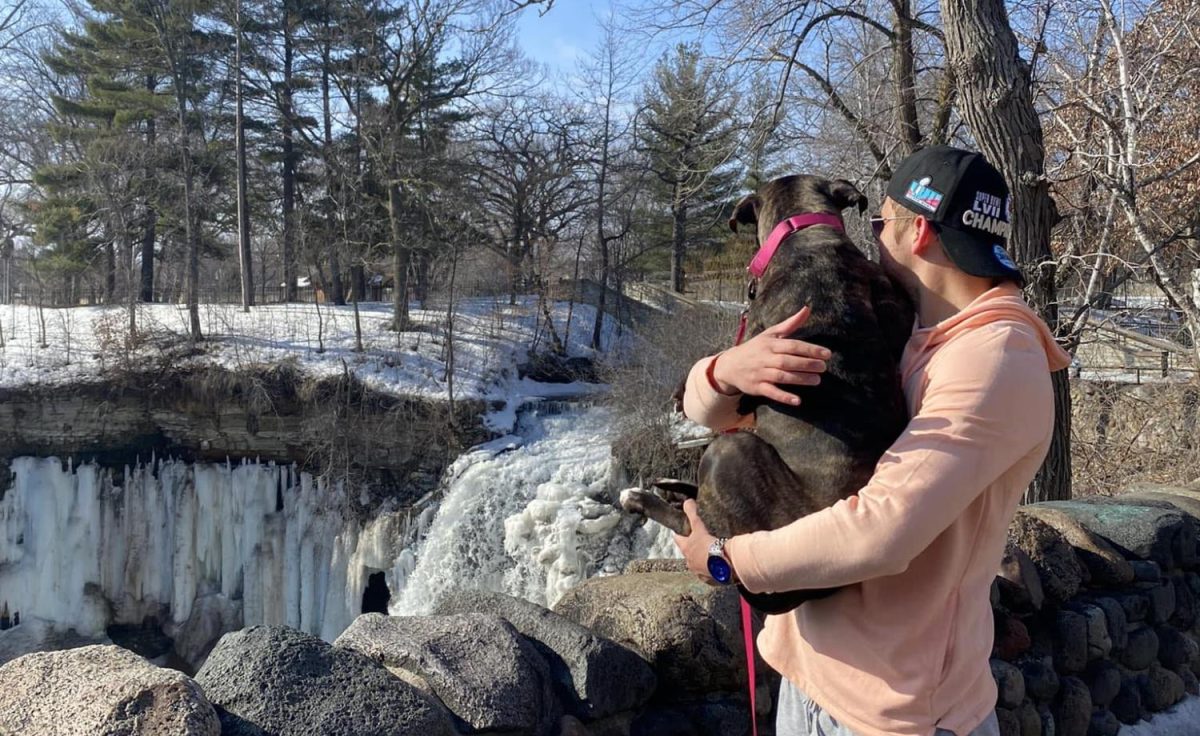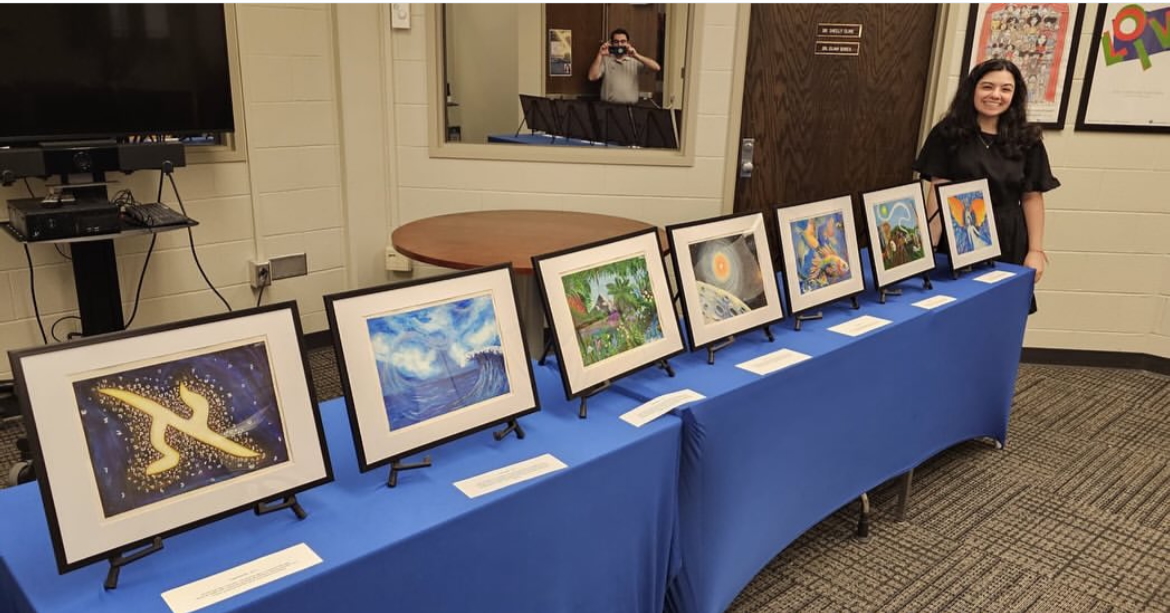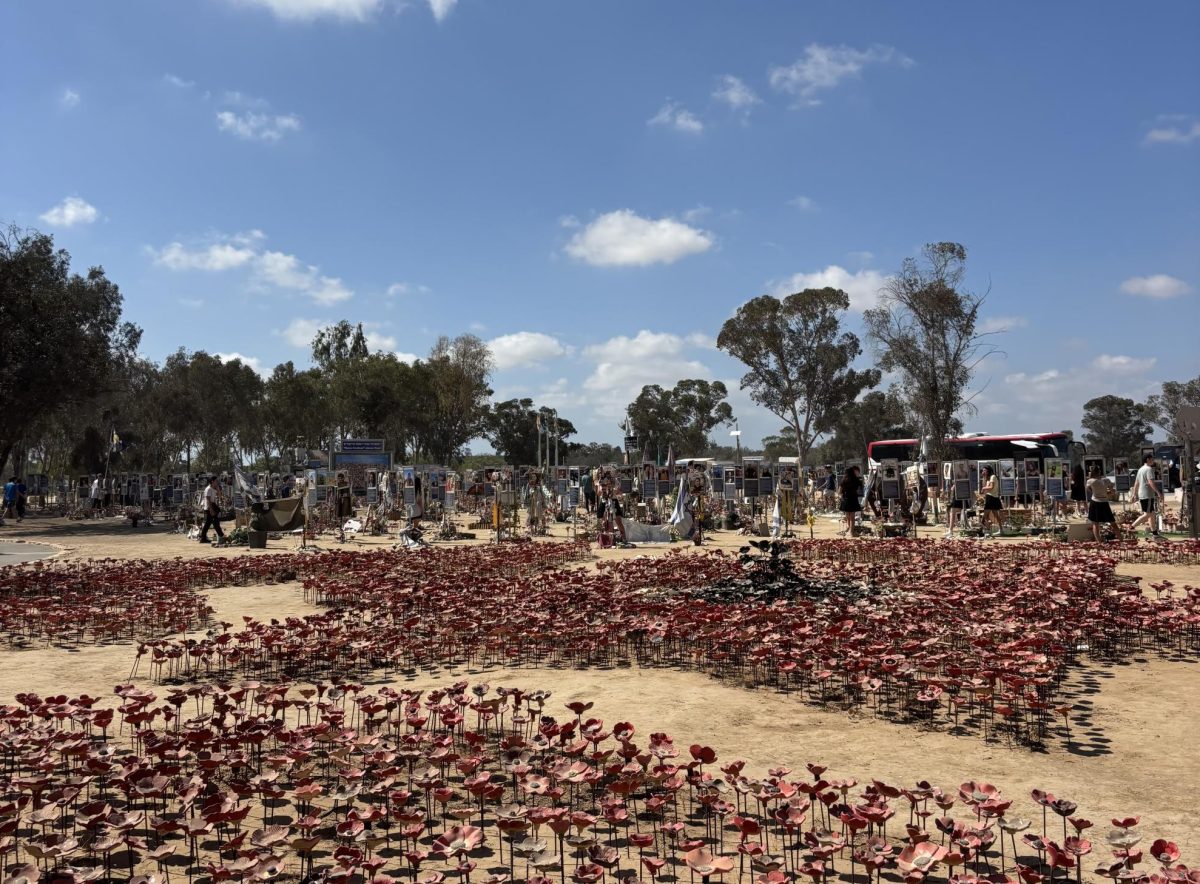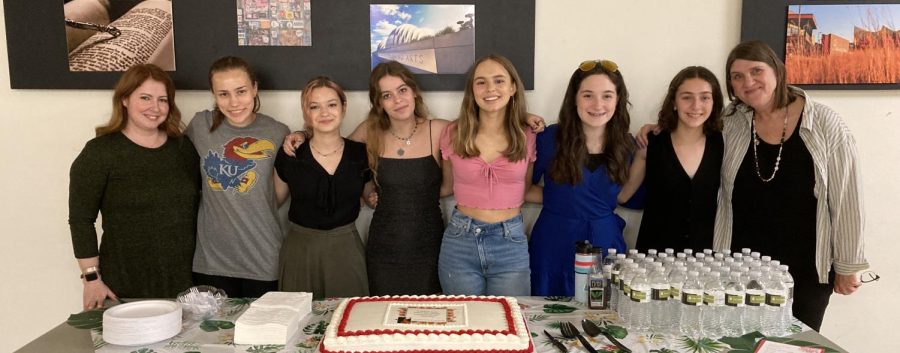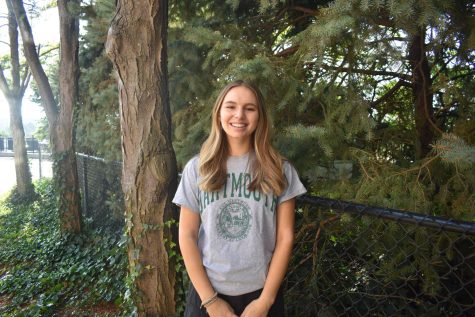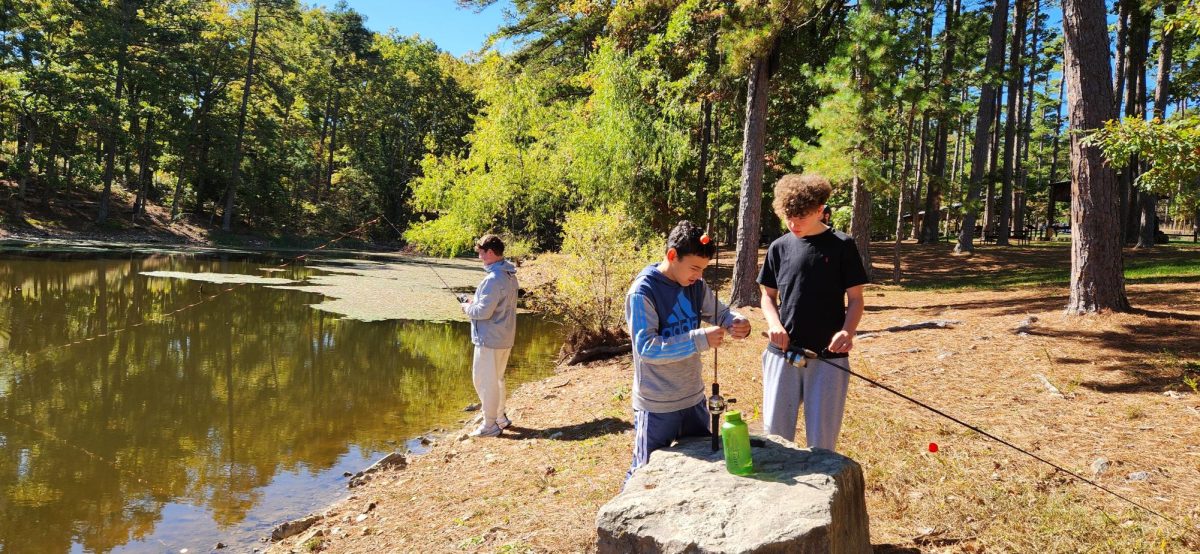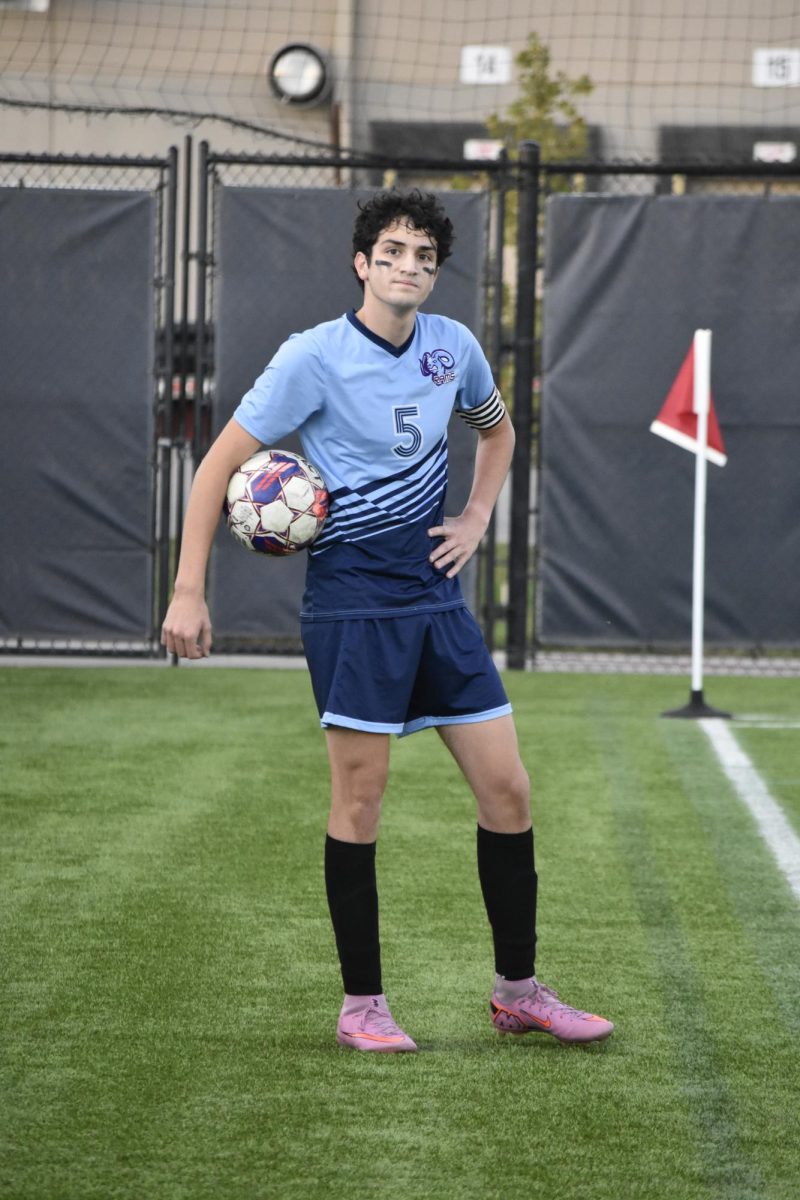HBHA Students Make History With First Ever Women’s Studies Class
October 21, 2022
2022 is the fifty year anniversary of the 1972 Title IX law which banned discrimination on the basis of sex in schools or other educational programs that receive federal funding. Though our country has made many advancements in women’s rights since this law passed, there is still much progress to be made. Hyman Brand Hebrew Academy (HBHA) students in the 2022 women’s studies class have helped to chip away at the barriers that continue to hold women back.
Coincidentally, on the fifty year anniversary of Title IX, HBHA ran its first women’s studies class. In this class, students from freshmen to seniors learned about the history of feminism, read and discussed high-level feminist texts, and read The Handmaid’s Tale by Margaret Atwood.. In addition, throughout the semester, students worked on a final capstone project that responded to the central question of the class: “How do you personally respond to patriarchy?” Some of the projects created included an immersive video experience, a feminist magazine, a short play, and a multimedia collage.
Kristin Huston, a co-teacher of the course, says that she and her other co-teacher chose this project to let students “have the freedom to respond [to the course’s central question] in lots of creative ways.” Huston notes that these amazing projects were the product of students’ autonomy to talk about “something that they care about deeply and that they see impacting their own lives.”
Rayli Kopelman, a sophomore at HBHA, created a vignette play about a day in the life of a female student at school, and she says that the point of this play was to show that “there is patriarchy in the school system” and to bring it to the attention of those who perpetuate it and those who stand by when it happens.
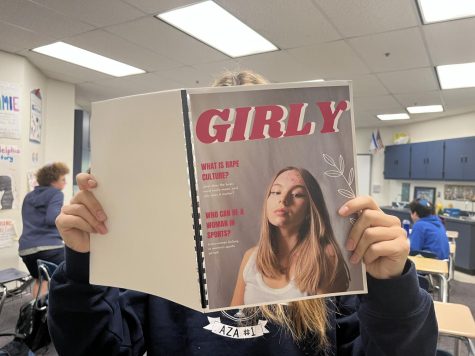
This author, senior Annie Fingersh, was also a participant in the women’s studies class. Fingersh created a feminist magazine that included infographics, articles, photos, and political cartoons. She wanted people to realize and take note of all of the issues women face, as well as the progress they have made.
Sophomore Noa Levine focused on the topic of clothing and “the way people perceive women based on what they wear.” She created a multimedia collage with photos of outfits that she and other teenage girls have worn that they either felt confident in or outfits that elicited negative comments from others. Levine wanted this project to bring attention to and make people reflect on why people choose to criticize what women wear and where these negative comments come from.
An immersive video experience was created by sophomore Livia Noorollah with the intention of bringing up the issue of how female teenagers feel about their bodies. In the video experience, Noorollah had three screens running in a dark room with video footage of her silhouette dancing and photos of female peers covering up parts of their bodies or dressed confidently. She also wanted people to realize “what we should be paying more attention to, like personality and what’s on the inside.”
All of these projects were presented at a showcase to parents, teachers, and friends of the students, and they were all received with incredible accolades. R. Gina Renee, the other co-teacher of the course, remembers the “avalanche of emails in support [of the presentations]” written to the teachers directly or even to the entire school community. She notes that she has never “done anything at HBHA that got that kind of…strong [positive] reaction.”
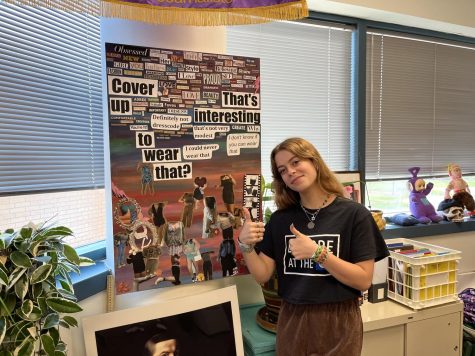
Both teachers did an incredible job at cultivating a challenging and creative classroom environment, but still one where students felt comfortable sharing vulnerable parts of themselves and discussing sensitive topics. Renee notes that since this class ended up being a single-sex class (which was not originally intended), the conversation and culture was much more open and was a contributing factor to the safe and supportive atmosphere that the students experienced. Another factor of this was Huston and Renee’s ‘locked door policy.’ They requested from administration that the door to their classroom always remain locked, helping students feel safe knowing that whatever they said in that room would remain there.
In my 13 years at HBHA, this class was truly my favorite class I have ever taken. The chemistry of the students in this class combined with the complicated and sensitive topics covered made for an emotional, thought-provoking, and always moving class experience. There was never a lack of discussion, and I deeply appreciated the diversity of the students’ backgrounds which always challenged me to consider topics in new ways. The teachers were truly passionate about this subject, something that is hard to come by these days, inspiring me to think more deeply and critically about these topics. But above all, I have never felt so safe to share my deepest thoughts and feelings about a topic that is so meaningful to me, and I have never felt so understood in an academic setting, which is something that I deeply cherish.
































